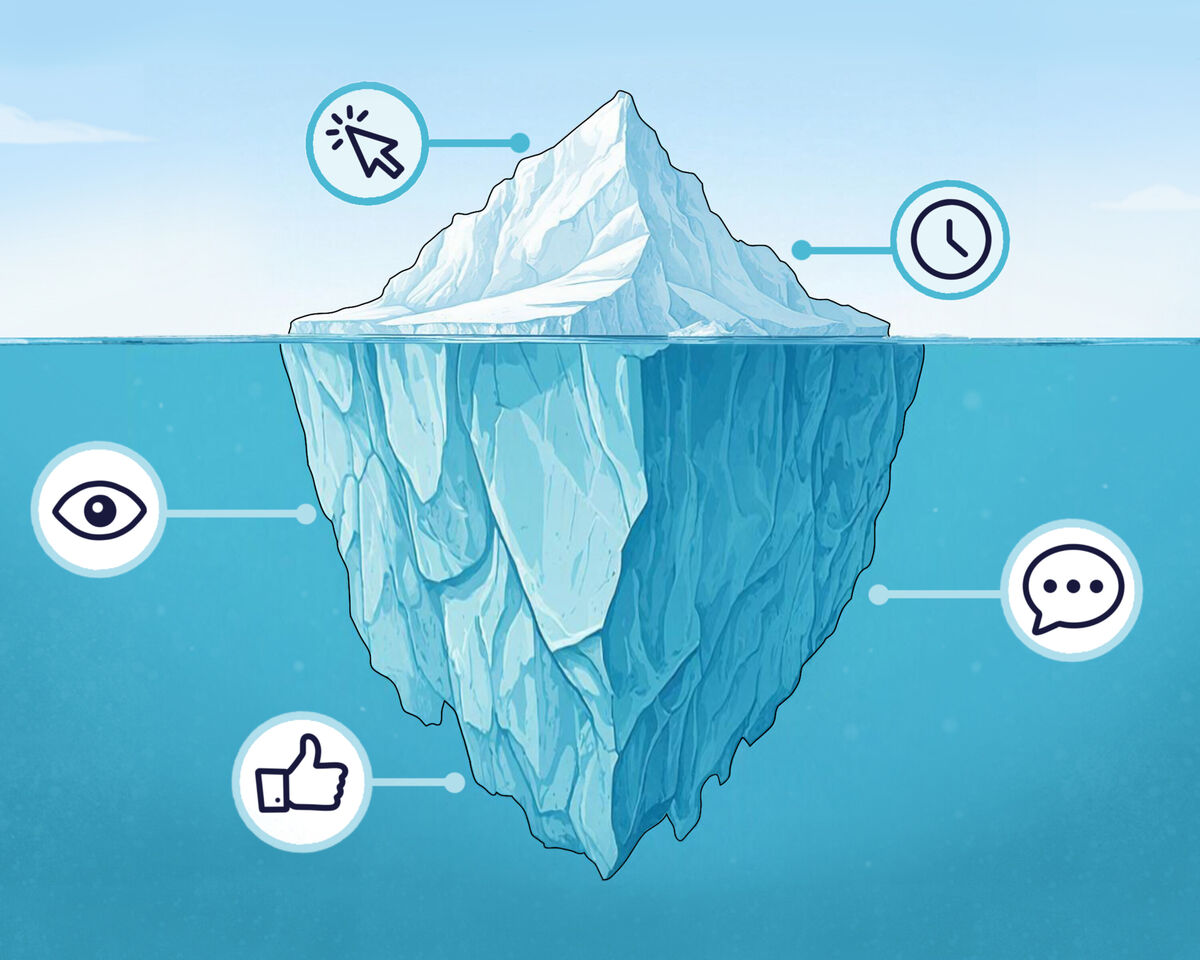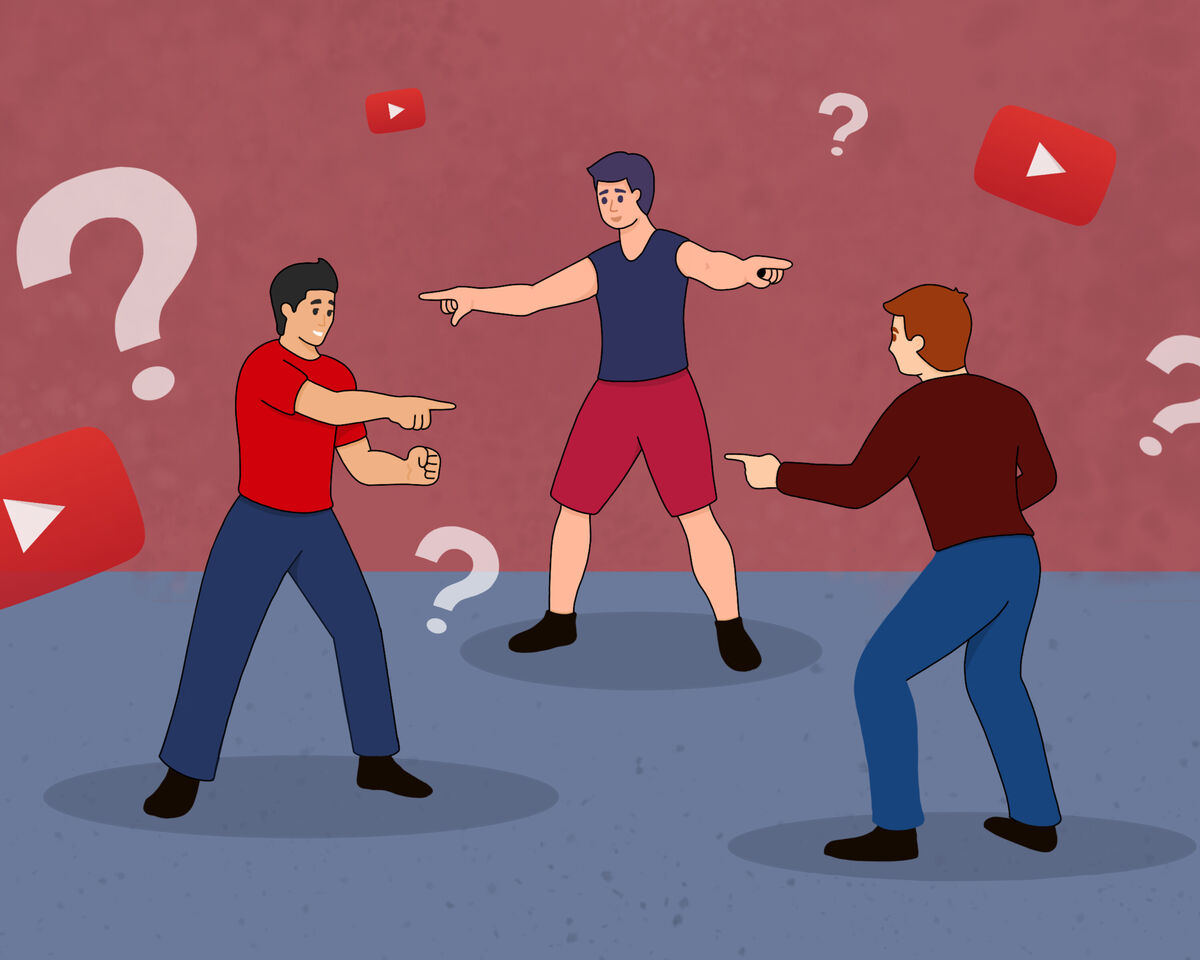How to Get More Views on YouTube

Let's be honest: marketing your channel solely through YouTube search is outdated. Everyone wants quick results and millions of views, but working with search traffic is an uphill battle, and is not a quick process.
However, you shouldn't abandon optimizing your videos. It’s important to research and use keywords relevant to your topic. You must understand the specifics of traffic sources, which is what we're going to address in this article so read on.
Search views are not as important as YouTube’s recommended views
The point above is correct in most cases. For rapid growth, YouTubers indeed find views from the recommendation system more crucial than views from YouTube search.
Let’s clarify what this means. On YouTube, there are two main ways to get views: when viewers find your videos through a specific search query on YouTube, or when your video is recommended to them on the platform's homepage or in the "Up Next" section.
When your goal is to grow quickly on YouTube, search traffic is not the most effective tool, as views from search come in slowly but steadily. On the other hand, YouTube's recommendation system can make a video go viral almost instantly, quickly accumulating views, though these views may eventually taper off.
The same topic, title, and thumbnail can perform differently depending on the traffic source, as seen in click-through rates, but this doesn't prevent the video from being recommended, as reflected in the view counts. Search may never catch up to recommendations in terms of view numbers, but it's consistent and doesn’t interfere with videos being recommended.
If your well-optimized videos with a plethora of well-chosen keywords don’t go viral immediately, the problem is that you’re focusing on a single traffic source that can’t provide rapid growth. Conversely, if you constantly create videos only for YouTube’s recommendation system, they might succeed sporadically, bringing a lot of views at once, but it becomes challenging to replicate that success. Between your successful videos, you might be left with minimal views, lamenting that YouTube no longer showcases your content to new viewers.
The key to your success will come from a combination of efforts. For example, you can't become a great racer without training, a good team, a reliable car, and a PR campaign. Being a great racer alone might not be enough to get you noticed; you need to do something more to gain recognition.
Success is the result of teamwork. However, as a beginning YouTuber, you’re unlikely to have a team of like-minded people working with you from the start. Initially, everything is done by one person—you. Therefore, a video’s success is the result of a whole range of actions that you must be adept at or outsource.
It is important to understand that optimization is beneficial for your videos but is not the deciding factor in getting your content recommended. Having your content recommended by YouTube depends on the audience and their reaction to your content.
Why, then, is working on optimization still important? Because stuffing your videos with a bunch of random keywords won’t help you. Proper optimization means researching your topic thoroughly. Only short, precise, and highly relevant phrases will help your content reach the intended viewer.
As a creator, you will need to conduct research to select the best topic, title, and thumbnail that will contribute to promoting your video.
Please don’t think that major YouTubers don’t engage in analysis: they have teams and trained professionals who constantly track trends and the most relevant topics. Based on this research, they create content plans, select video topics, and shape their plots and designs.
If you have to choose between search traffic and recommendations, the latter is ultimately more preferable and effective.
How does working on video optimization affect your placement in YouTube’s recommendation system?
We suggest replacing the word "optimization" with the simpler and more practical term "research." This will help us better understand what this process entails.
You need to engage in research regardless of whether you are aiming for search traffic, recommendations, or just trying to get noticed by your target viewer.
- Define your zone of influence
If you take a broad look at the videos that exist in your topic, it will be easier for you to identify what your target audience is watching and which videos your content will compete with. This is where research begins, because optimization primarily helps you find your place on YouTube.
To make this stage easier, ask yourself, "What am I doing or want to do here on YouTube?" Your answer will help determine the area of influence you want to reach and the boundaries of your working zone.
Write down or note the results of your research at this stage, and don't overload yourself with too many tasks. The goal here is just to find your place on YouTube. Take everything step by step.
- Determine who you will work with
You don't need to analyze just all the creators in your niche who have the most subscribers and views. It's much more important to assess the growth rates of these metrics.
If a channel has a million subscribers but has stopped uploading videos, there's likely nothing valuable to evaluate. Or, for instance, if someone has a large audience but has since changed their channel's focus and now gets views on entirely different content.
It's essential to look at who is currently popular in the niche, whose videos are liked by viewers, and why they are popular at this moment in time.
To find out the growth rates of your competitors, you can use the basic functions of the free vidIQ extension.
Additionally, if you dig through the comments, you can glean important insights such as:
- Why viewers watch this content (charisma, presentation, plot, frame composition, etc.)
- Who the people watching this content are (age, interests, personality, etc.)
Knowing who your future viewers are is perhaps the most important factor. Your research will never be effective if you don't learn anything about your viewers and their needs during this process.
Record all the results of your research, and by the end of this step, you will have gathered the following information: your place in the niche and your sphere of influence, familiarity with your competitors, their content, and the reasons why they are watched, as well as knowledge about your potential viewers and their interests.
- Identify winning topics and success patterns
If you've progressed this far in your research, you've likely noticed that some videos get more views while others get fewer. Choosing a successful topic is only half the battle. You need to learn to identify patterns that lead to certain videos' success.
Sometimes it's about covering current trends; other times, a video addresses a specific viewer's need. There are also times when it's not even about the topic but the video's format. In any case, finding what works and identifying success patterns is a crucial part of your research.
If you're not studying and only assuming that your chosen topic is good, you're not accurately predicting its success. Keep this in mind: a video topic won't be successful just because you think it is. You need to research its potential and forecast its success.
As contradictory as it may sound, no one can guarantee success, even if you do everything right. This skill takes years to develop. Don't demand instant results from yourself at this stage; let your research help you develop a strategy that will eventually yield consistent and rapid results.
How can you learn to identify winning topics and videos?
Begin with compiling the most viewed videos overall. There are two paths for this:
- analyze videos from specific channels of other creators
- analyze videos based on specific search terms
In small steps, compile a list of topics that can be categorized: currently relevant, always relevant, etc. Always include links to specific videos in your notes, as these will be useful later.
You should note that sometimes a topic can have successful metrics, but the presentation by a particular creator may affect its viewership. To determine if a video gains views due to its topic, observe how various content creators approach it.
You also need to analyze why viewers watch these videos.
- The person on screen: their image, charisma, speech style, and material delivery.
- The frame itself: lighting, background, and content.
- Content: how the plot unfolds, what techniques the creator uses (suspense, jump scares, audience interaction), and overall structure (beginning, middle, end).
- Effects: such as titles, music, graphics, collages, visuals, transitions, etc.
The magic lies in conducting thorough research consistently to stay abreast of your peers and the ever-changing tastes and interests of viewers.
If you've been running a channel for a while, don't forget about analytics data like "What your viewers watch." This provides insights into specific channels and videos, helping you gauge competitors and current viewer interests.
Over time, you'll automatically understand what works better or worse in your YouTube niche. Utilizing this research based approach will help make your life easier.
- Research outcomes
By the end of this process, you'll have a full grasp of:
- The composition of your niche and your potential position within it.
- Which creators and videos you'll compete with for audience attention.
- The audience in your niche, their queries, pains, and interests.
- Current and perennially popular topics, optimal video formats and structures, and which techniques (successful or not) other creators use.
Based on all this, you can not only lay the groundwork but also identify unique contributions to your niche. You will be able to answer: How do I stand out among other creators?
Lastly, video optimization for search may not be essential because YouTube SEO is yesterday's news. The most effective way to promote your videos in 2024 is through YouTube’s recommendation system. However, without optimizing your content, you can't create videos that algorithms will pick up and promote each time, rather than randomly once a year.
This research will also help you create catchy titles and attractive thumbnails without relying on chance to find successful solutions.
For long-term growth of your channel, make sure not to overlook opportunities to learn more about YouTube’s platform. The insights gained from your research will help you correct errors and build a solid foundation for successful channel development.




